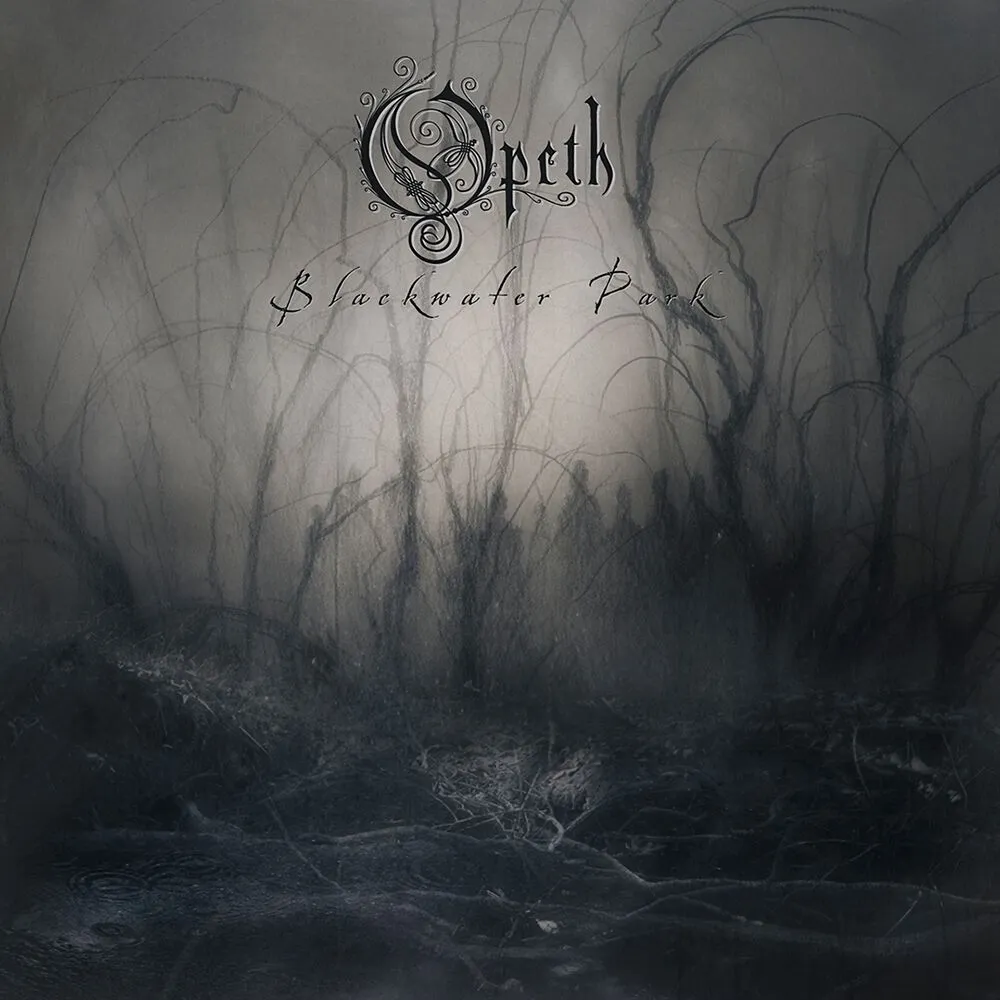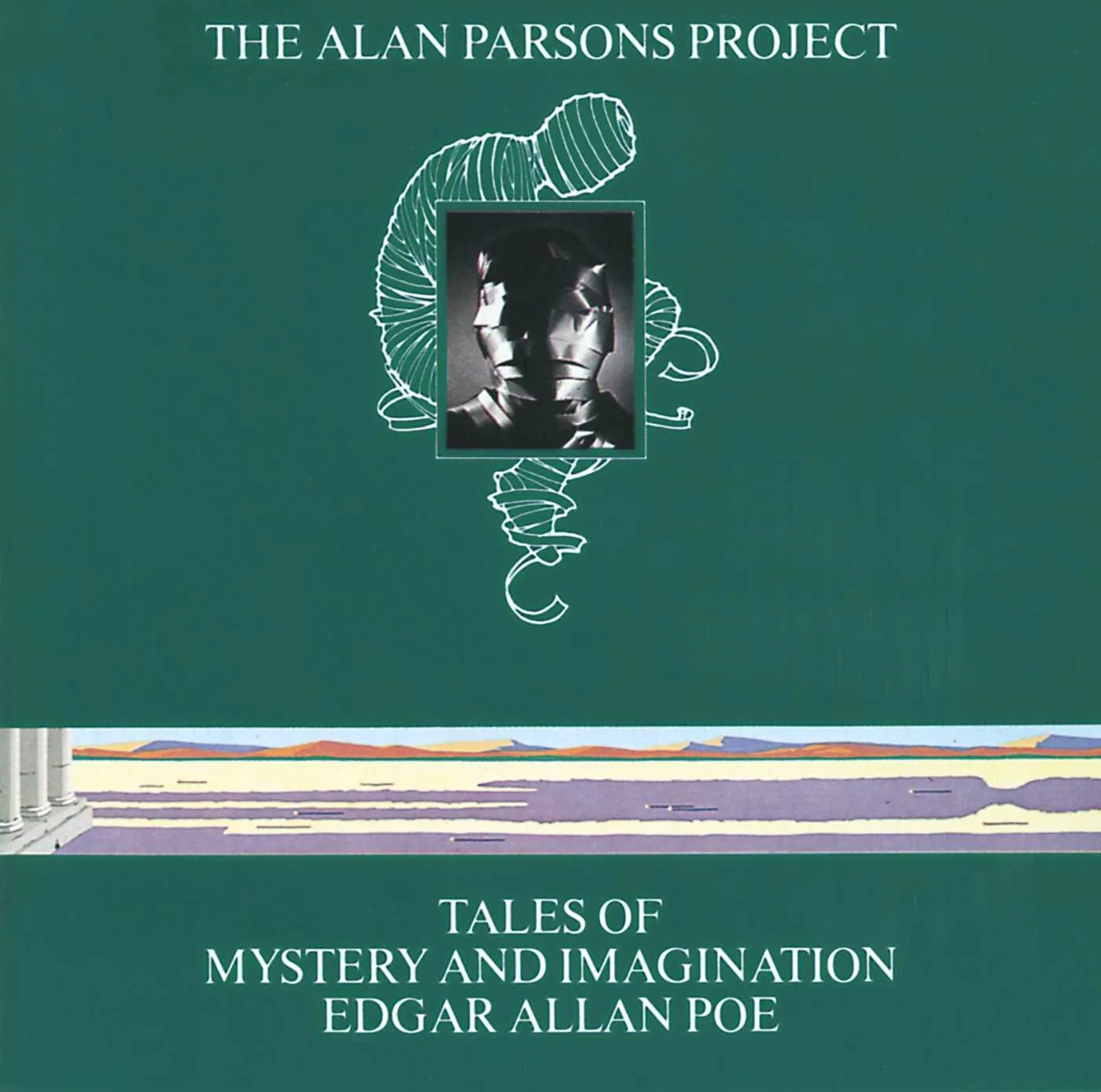Opeth Blackwater Park Review
Opeth is probably my favourite band. Blackwater Park is maybe my favourite album. And the genius frontman Mikael Åkerfeldt is, without any doubt, my reference in the world of not only metal, but also in the music scene. Is there anything this man doesn’t do well? Because he is able play the acoustic guitar, the electric guitar, sing, scream, and do guttural vocals, compose not only melodies but also write poetry and make it fit into a 10-minute song. With that said, this Opeth Blackwater Park review is something special to me.
When discussing Opeth as a musical entity, their sonic journey has unfolded with a captivating metamorphosis (or perhaps a regression, depending on one’s perspective) that culminated in the release of Blackwater Park in 2001, a significant number of years ago. This album served as a genuine watershed moment for the music industry, inspiring countless future bands to endeavor to replicate or infuse their own repertoire with Opeth’s unique fusion of Progressive Death Metal. This fusion seamlessly blended intricate acoustic melodies and ethereal clean vocals with the raw intensity of potent riffs and guttural vocal expressions, leaving an indelible mark on the landscape of musical innovation.
Steven Wilson´s influence in Blackwater Park
Focusing on the Blackwater Park review, this album was significantly influenced by the involvement of Porcupine Tree’s frontman and producer, Steven Wilson. It was no coincidence that this album turned out to be so spectacular due to his contributions. Subsequent releases also featured his participation, highlighting the reasons why his input was pivotal to Opeth’s success. This is not to diminish Opeth’s talent by any means, but to underscore the crucial role played by this fundamental figure in the quality of some of the band’s work.
Blackwater Park explores themes such as love, death, anguish, and the inexorable passage of time. However, these themes aren’t presented directly in the songs but rather through metaphors and similes, all in a figurative manner. The lyrical content of the songs carries a noticeable emotional and melancholic weight.
With this brief context, we can now proceed to analyze song by song (or movements, as Mike likes to say) and delve into more details in this Opeth Blackwater Park review.
Blackwater Park Tracklist
- “The Leper Affinity” – 10:23
- “Bleak” – 9:16
- ” Harvest” – 6:01
- “The Drapery Falls” – 10:54
- “Dirge for November” – 7:54
- “The Funeral Portrait” – 8:44
- “Patterns in the Ivy” – 1:53
- ” Blackwater Park” – 12:08
“The Leper Affinity”
The album kicks off with “The Leper Affinity,” a track that epitomizes Opeth’s ability to blend the brutality of Death Metal with hauntingly beautiful passages. The ominous opening riffs soon give way to Åkerfeldt’s signature growls, setting an intense tone. However, it’s the transition to clean vocals and melodic guitar lines that truly defines this track. The lyrical themes, exploring alienation and the human condition, set the stage for the album’s overarching narrative.
What I admire most about Opeth is their ability to seamlessly transition between the monstrous and the beautiful. They do it in a way that barely gives you time to grasp how subtle and brilliant they are. In “The Leper Affinity,” we see this in the first part, in the middle, and in the second and final part—brutal, serene, and brutal once more. However, the last part concludes with very delicate piano notes, leaving the listener with a sense of nostalgia and tranquility.
“Bleak”
“Bleak” has one of the best openings I’ve ever heard in a song. It’s impossible to enter with such elegance and power at the same time. The first few minutes of this song have shades of classical music in terms of structuring. The chorus of the song stuck with me, and every time I hear it again, it’ll stick with me once more: “Devious movements in your eyes…”
However, one of the most epic and climactic points of both “Bleak” and the album occurs in the second half of the song. After some jazz-style melodies, a masterful riff emerges like a monster, accompanied by the constant and imposing drum pedals. Shortly after, a beautiful and melancholic guitar harmony takes the stage, shrouded in a kind of distortion. The bassline of Martín Méndez is sublime, to say the least. You can perfectly hear its own melody. To conclude, the band picks up the pace and finishes in an evil and disturbing manner. It’s the first headbanging moment of the album if “The Leper Affinity” hadn’t already achieved that.
“Harvest”
With this song, they give us a breather, a few minutes to catch our breath for the rest of the adventure. In “Harvest,” Mikael Åkerfeldt and Steven Wilson sing in duet, accompanied by cyclic melodies of acoustic guitars. Ultimately, it’s a classic rock song that is always welcome to include in albums of such intensity.
“The Drapery Falls”
The second standout moment of the album and one of the most recognized in Opeth’s catalog. After some mystical acoustic guitar notes, the listener is drawn into a dark yet simultaneously relaxing vortex. For a moment, you enter a state of relaxation and focus, only to be brought back to reality when the chorus kicks in, slowing down the pace a bit. Another epic moment indeed.
Following a series of highly sinister riffs and demonic guttural vocals, that combination of distorted guitars and tremolo picking returns, this time amplified by the drums of Martín López, which use an additional beat with the pedals.
“Dirge for November”
After the intensity of the previous song, here, they give us a bit of calm once again. However, this calm won’t last for long, as not much time passes after the acoustic parts that Opeth loves so much have played again, the drums and heavily distorted guitars of Peter Lindgren and Mikael Åkerfeldt come in thunderously to leave us speechless once more. As the song progresses, you find yourself letting go.
“The Funeral Portrait”
“The Funeral Portrait” delves into darker territories both musically and thematically. It’s a track that exudes an aura of foreboding, intensified by Åkerfeldt’s guttural vocals and eerie guitar work. The lyrics paint a vivid picture of desolation and existential reflection.
In “The Funeral Portrait,” we witness an abundance of inventive riff creation. While it may not quite reach the same level of grandeur as the other tracks, it certainly doesn’t diminish the overall quality of the album. It stands as a highly competent song, even if it doesn’t aspire to the same epic heights. After all, in an album filled with so much epicness, a touch of variety and contrast can be quite refreshing, don´t you agree?
“Patterns in the Ivy”
Serving as a hauntingly beautiful instrumental interlude, “Patterns in the Ivy” provides a brief respite before the album’s climactic conclusion. Its ethereal melodies linger, evoking a sense of melancholy.
“Blackwater Park”
The album’s titular track, Blackwater Park, serves as its magnum opus. Clocking in at nearly 12 minutes, it encapsulates Opeth’s multifaceted approach to music. From its thunderous opening to the intricate guitar solos and poetic lyrics, it’s a tour de force. Lyrically, it delves into themes of despair and introspection, mirroring the album’s overarching narrative.
Drenched in an incredibly diabolical sound, at the end of the journey that Blackwater Park has conveyed to us, we encounter a 12-minute behemoth. Within these 12 minutes, there’s a sort of interlude in the first half of the song, which allows us to catch our breath because it’s necessary. From my perspective, the eponymous track of the album starts off gradually, although I really appreciate how the first riff begins with those mystical arpeggios.
Conclusion and Final Rating
In conclusion, I firmly believe that we are discussing one of the paramount albums in the history of the genre. It encapsulates every essential element: a profound concept, exceptional quality, and impeccable production. Personally, for me, this album, along with the other masterpieces crafted by this band, have left an indelible mark on my musical preferences. They’ve even influenced my aspirations for the direction of my own music, should I choose to pursue it.
Moreover, it’s noteworthy that the consensus among Opeth’s devoted fanbase places “Blackwater Park”at the zenith of the band’s discography, a remarkable feat considering the Swedish ensemble boasts an extraordinary catalog of the highest caliber. It won’t be long before RiffRiot undertakes the challenging task of ranking their studio albums, as this Opeth Blackwater Park review was no short of emotion. As a final note, here’s our evaluation:





